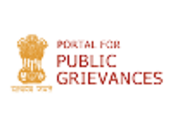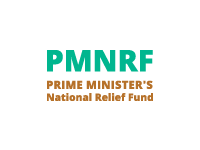Excerpts from the Budget Speech of the Union Finance Minister, Govt. of India delivered in the Lok Sabha are produced below:
Science & Technology
42. My last budget was viewed in certain quarters as science and technology-friendly. Flattery has its rewards, and I intend to strengthen my friendship with the scientific community. I propose to take the following initiatives:
-
The scheme to match every additional commercial rupee earned by CSIR and ICAR laboratories, as well as the IITs, will continue on a permanent basis.
-
The Technology Development Board, established to accelerate the commercialisation of indigenous technology, has identified 16 projects that are commercially viable in the fields of agriculture, health, chemicals and pharmaceuticals. In 1996-97, I provided Rs.30 crore to the Technology Development Fund. I propose to increase the allocation in 1997-98 to Rs.70 crore.
43. Tomorrow's technology is based on today's science. I am concerned that there is declining interest in the learning of sciences in schools and colleges. I hold the view that an MBA even if he is from Harvard is not a patch on a scientist. On the occasion of the 50th anniversary of our Independence, we will launch the "Swarnajayanti" fellowships. Outstanding scientists below the age of 45 will be assisted to attain and sustain world class levels in science. A sum of Rs.50 crore in the Department of Education's budget will be used to create a corpus. The Minister of State for Science and Technology will announce the details of the scheme.
44. Closer linkages have to be developed between Indian industry and publicly-funded research laboratories. Hence, I propose to allow government-promoted societies recognised by the Department of Scientific and Industrial Research and notified under the Income Tax Act to invest in the equity of private sector companies. These institutions will invest not money but their knowledge and know-how as their equity.
Information Technology
45. If there is one science that will dominate the 21st century, it is information technology. If there is one industry in which India can emerge as a world leader, it is information technology. However, for this potential to be realised, we need a completely new policy for manufacturing and marketing IT products. The Electronic Hardware Technology Park (EHTP) Scheme, presently in force, gives limited flexibility. There is an imperative need to increase production volumes and attract foreign direct investment.
Accordingly, it has been decided that EHTP/EOU/ EPZ units in electronic hardware may be permitted to sell one half of the value of their products, during any 12 month period, in the domestic market and export the other half. The sale in the domestic market will be on payment of excise duty equivalent to full customs duty, including the additional duty of customs. Details of the new unified manufacturing scheme will be incorporated in the new EXIM policy that will be effective from April 1, 1997.
Direct and Indirect Taxes
97. There has also been a demand from the corporate sector that the tax rate of 30 per cent on royalty and technical services fees payable to foreign companies is too high and acts as a hindrance to the transfer of technology. I, therefore, propose to reduce this rate to 20 per cent.
103. I have already announced that Telecommunication will qualify as an infrastructure. I, therefore, propose to extend the following benefits to this sector :-
-
(i) Tax holiday under section 80 IA;
-
(ii) Amortisation of licence fees; and
-
(iii) Inclusion of investments made in debentures and equity shares of a public company providing telecommunication services for the purposes of tax rebate under section 88.
113. I also propose to exempt plans, designs and drawings from the levy of customs duty.
119. Mr. Speaker, Sir, the scheduled dismantling of quantitative restrictions under the Multi Fibre Agreement will expose all textile exporting countries to stiff competition. The Ministry of Textiles have created a Technology Upgradation Fund for both the textile and jute industries to enhance the competitive efficiency of these sectors. Our textile industry has, therefore, to upgrade its te technologies in the shortest possible time. Last year, I had reduced the customs duty on several kinds of textile machinery to 10%. In order to improve the quality of our garments for exports, this year I propose to add some more processing machines to this category. However, to mitigate any adverse impact on domestic manufacturers, I have decided to allow them to import the components and parts of these machinery at a concessional duty of 10%.
122. The spread of Information Technology has radically altered conventional wisdom on growth strategies. I propose several measures to encourage this industry and to reduce costs. These include:
-
Full exemption to computer software.
-
Reduction of duty on computer parts, other than populated printed circuit boards, from 20% to 10%.
-
Reduction of duty on cartridge tape drive and digital video disc drive from 20% to 10%.
-
Reduction of duty on populated printed circuit boards from 30% to 20%.
-
Reduction of duty on integrated circuits from 20% to 10%.
-
Reduction of duty on colour monitor tubes from 20% to 10%.
-
Reduction of duty on colour picture tubes from 35% to 30%.
-
Reduction of duty on parts of cellular telephones and pagers from 30% to 20%.
-
Reduction of duty on telecom equipment from 40% to 30% and on their parts from 30% to 20%.
125. We are all concerned about the menace of growing pollution. In order to help reduce the cost of CNG kits, I have decided to reduce the customs duty on such kits and their parts from 10% to a modest 5%. Similarly, I propose to reduce the customs duty sharply on catalytic converters and their parts to 5% from the existing rate of 25%.
126. To improve the quality of medical care, I propose to reduce the import duty on medical equipment from 30% to 20%; on linear accelerators of 15 MeV and above used for cancer treatment from 10% to 0%; and on ophthalmic blanks for making spectacle lenses from 50% to 20%.
139. At present, import of equipment and consumables by recognized research institutions is exempt from customs duty. In the interest of the domestic producer, I propose to allow the purchase of indigenous equipment and consumables by such institutions free of excise duty.
Chapter III
As proposed in the Finance Bill, 1997
Direct Taxes
5. In section 35 of the Income-tax Act, after sub-section (2AA), the following sub-section shall be inserted with effect from the 1st day of April, 1998, namely:
"(2AB)(1) Where a company engaged in the business of manufacture or production of any drugs, pharmaceuticals, electronic equipments, computers, telecommunication equipments, chemicals or any other article or thing notified by the Board incurs any expenditure on scientific research and such expenditure is of capital nature (not being expenditure in the nature of cost of any land or building) on in-house research and development facility as approved by the prescribed authority, then, there shall be allowed a deduction of a sum equal to one and one- fourth times of the expenditure so incurred.
(2) No deduction shall be allowed in respect of the expenditure mentioned in sub-section (1) under any other provision of this Act.
(3) No company shall be entitled for deduction under sub-section (1) unless it enters into an agreement with the prescribed authority for cooperation in such research and development facility and for audit of the accounts maintained for that facility.
(4) The prescribed authority shall submit its report in relation to the approval of the said facility to the Director General in such form and within such time as may be prescribed."
"35ABB(1) In respect of any expenditure, being in the nature of capital expenditure, incurred for acquiring any right to operate telecommunication services and for which payment has actually been made to obtain a licence, there shall, subject to and in accordance with the provisins of this section, be allowed for each of the relevant previous years, a deduction equal to the appropriate fraction of the amount of such expenditure."
25. In section 80-IA of the Income-tax Act,
(a) In such-section (1), after the words "scientific and industrial research and development"
(i) the words "or providing telecommunication services whether basic or cellular" shall be inserted and shall be deemed to have been inserted with effect from the 1st day of April, 1996;
(ii) after the words "or providing telecommunication services whether basic or cellular" as so inserted the words "or operating an industrial part" shall be inserted with effect from the 1st day of April 1998.
Indirect Taxes — Excise Duty
53. Full exemption from excise duty on goods procured by Public Funded Research Institutions or Non-commercial Research Institutions subject to certain conditions.
Memorandum Part 3 — Customs
38. Reduction in customs duty on:
(a) computer parts excluding PPCB from 20% to 10%;
(b) catridge tape drives and digital video disk drives from 20% to 10%;
(c) integrated circuits and micro assemblies from 20% to 10%.
39. Full exemption from customs duty on computer software and on braille printers/embossers and braille displays specially designed for computer systems.
40. Reduction in customs duty on:
(a) colour data/graphic display tubes from 20% to 10%;
(b) colour picture tube from 35% to 30%.
41. Reduction in customs duty on:
(a) finished telecommunication equipment from 40% to 30%;
(b) parts and sub-assemblies of telecommunication equipment from 30% to 20%;
(c) parts of cellular telephones and pagers from 30% to 20%





















